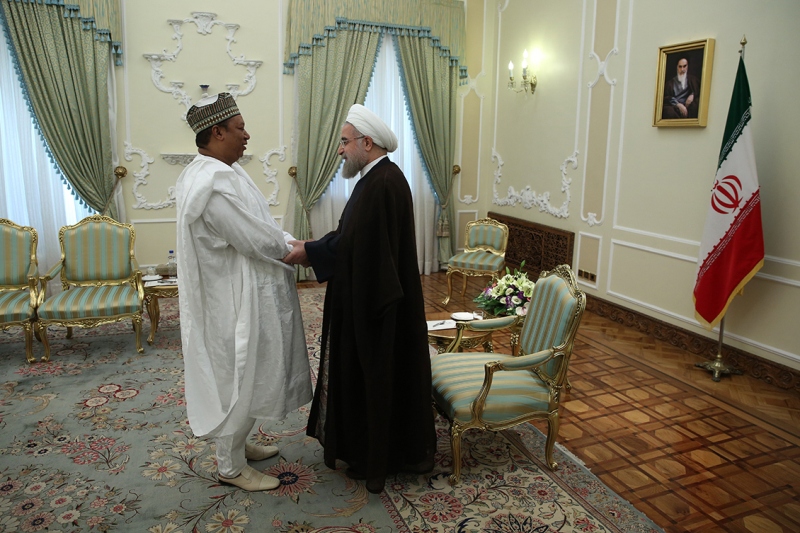-
Tips for becoming a good boxer - November 6, 2020
-
7 expert tips for making your hens night a memorable one - November 6, 2020
-
5 reasons to host your Christmas party on a cruise boat - November 6, 2020
-
What to do when you’re charged with a crime - November 6, 2020
-
Should you get one or multiple dogs? Here’s all you need to know - November 3, 2020
-
A Guide: How to Build Your Very Own Magic Mirror - February 14, 2019
-
Our Top Inspirational Baseball Stars - November 24, 2018
-
Five Tech Tools That Will Help You Turn Your Blog into a Business - November 24, 2018
-
How to Indulge on Vacation without Expanding Your Waist - November 9, 2018
-
5 Strategies for Businesses to Appeal to Today’s Increasingly Mobile-Crazed Customers - November 9, 2018
Iran just tweaked the way it talks about the oil market
A source at the Organization of the Petroleum Exporting Countries confirmed the meeting as part of a push for an output deal, with producers battered by a glut-induced halving of oil prices over the past two years.
Advertisement
As OPEC officials shuttle between Tehran, Moscow and Paris in preparation for an informal meeting in Algiers, the focus of their efforts appears to be moving from a production freeze to voluntary output caps.
“If we could not do that and accept one system – which is to use secondary sources – it would complicate things further”, the source said. “We can’t allow each country to use a different method”, the source said.
After two years of a Saudi-led strategy of all-out pumping, adopted to protect market share against the surge in USA shale oil, crude is still trading at half its 2014 level and major producers are putting cooperation to stabilize the market back on the table.
“Iran has said that it wants to increase its production capacity and its actual production to the level before the sanctions were imposed by United States and the UN and the Europeans, which made Iran not to produce and not to sell”.
The sanctions ended in January this year.
Suggesting Tehran might be struggling to fulfill its plans to raise production to new highs while demanding to be excluded from any OPEC deals on supply curbs, new data showed, Iran’s steep oil output growth has stalled in the past three months.
Still, on Wednesday, the director for worldwide affairs at state-run National Iranian Oil Co., Mohsen Ghamsari, said that Iran would be ready to decide on capping production only after its output hit pre-sanctions levels, which would amount to just over 4 million barrels a day, according to Bloomberg.
Tehran signaled on Tuesday it was prepared to work with Saudi Arabia and Russian Federation to prop up oil prices as it began to bargain with OPEC on possible exemptions from output limits. Iran also told OPEC it produced 3.63 million bpd in August, according to an OPEC source.
Advertisement
A freeze in production by OPEC and Russia would be the most effective way of stabilizing the market, Alexander Novak, the Russian energy minister, said in a joint press conference at the G-20 summit in China with his Saudi counterpart on September 5. Discussions aimed at freezing production failed in April after Saudi Arabia insisted on the participation of its Persian Gulf rival Iran, which said it would keep increasing output after the lifting of worldwide sanctions.





























